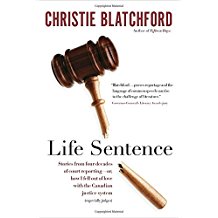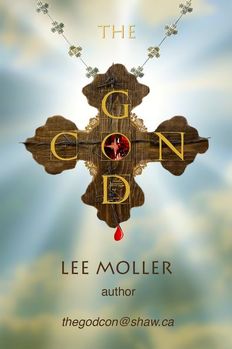 Another very enjoyable book from Christie Blatchford. I have always liked reading her columns in the NP. Her earthy style of writing is restrained in newsprint, but not so in her books. It is a worthy successor to Helpless, the story of the OPP and the feds turning their backs on the small town of Caledonia, ON. Truth be told, the sins of the system as described in Life Sentence do not hold a candle to the system allowing politics and ambition to trump even the most basic tenets of the rule of law in Caledonia. A nice type size and good leading means a fairly quick read. The book is broken into broken into several large chunks consisting of an anecdotal review of her career; then four long chapters on the big cases: R v. : Abreha, Elliott, Bernardo; and Ghomeshi. In the opening chapter, she recounts some fun moments, like when the Special Investigative Unit that investigates police shootings hired a hot homicide detective only to discover that he was a fraud; or the when the government hired a race relations specialist who told lawyers that the Holocaust was not racist because no black people were involved. She notes as well, after years of legal wrangling, Duffy is back in the Senate sucking on the same teat as before. And more importantly, she asks why judges do not get the same scrutiny as senators. She points out that judges work for us, and that it is within our rights to criticize them, and they have a duty to disclose expenses just like everybody else. In Abreha, Christie rails against the condescending treatment of jurors. In fact, we just had the Oland case pitched due to an issue of jury instruction. Jurors seem to be unable to get even the most trivial of research sources themselves, like having access to a dictionary. It is assumed that jurors are incapable of, for example, separating past misdeeds from current misdeeds, but it is inherently assumed that lawyers and judges are capable of such feats, as well as many others that mere mortals can only aspire to. Blatchford quotes one juror who said: "The arrogance of the judicial system doling out just enough information to keep us pure 'intolerable'. " I agree. In some cases, judges have actually lied to jurors. Actually, they all lie to the jurors, because they all say the same thing at the end of the trial… "You have now heard all the evidence.", and that is almost always a lie. If you say that is not right, you will get a lecture on "probative value versus prejudicial effect". IMHO: If we are going to have juries, they should have all the facts. The Elliott case focused on a judge Cosgrove who went right off the rails during the trial. To make a long weird tale short, Cosgrove was incompetent. He threw his weight around illegally, and, at the end of the day, still did not acknowledge his misdeeds. Cosgrove was a patronage appointment. The Canadian Judicial Council was involved and actually debated whether "incompetence" should be tolerated in judges, so untouchable as they are once appointed. Camp is another judge recently in the news who actually used "ignorance of the law" as an excuse for his errors as a judge!. The appointment process is totally screwed up in Canada, but the good news is that it is getting better. Reading about Bernardo again is hard. The facts of the case are stomach-turning. The Bernardo trial was totally screwed up by the prosecution. Innocent lawyers were trashed by the system. Politics, optics and expediency ruled the court's decision making processes. The crown made a deal with the devil (Homolka) when they definitely should not have. But worse for the legal system, victims were granted de facto status in the court, with their own attorney, who the crown then tasked to do things that were clearly in conflict. This mess resulted in some really dumb stuff. The press was not allowed to see the Homolka tapes (due to the victim's weight in the court), but could hear them. But the sound was bad, so the crown provided a transcript that they could not read, but the cops could read it to them. So the reporters had to scribble the text from the readings of the cops while listening to a tape, which they could not understand, of a video they were not allowed to see. The Bernardo case saw the legal system turn on itself, and it was ugly. This rise of the victim does not bode well, and we are seeing the impacts today. The victim should have no say in the evidence presented at trial, but in Bernardo, they ruled the roost. The state even went after reporters for breaching court orders WRT banned information, information that they had made public earlier. In one instance, the OPP fabricated evidence to get at a lawyer who had crossed the Province's AG, who was hip deep in conflict issues. Finally, the Ghomeshi trial is discussed, and it too was a fiasco. Once again, the victims rose up, screwed up everything, and disappeared. The details of the Ghomeshi trial are still fresh in most peoples mind, but if you want more, read the book. This was a good read. The system is not broken. I am sure 95% of convictions are routine and well handled. But it seems the bigger the trial, the more it seems like the lunatics are running the asylum. We recently had a literal show trial and it showed us that the judge was a screw-up.
0 Comments
Leave a Reply. |
AuthorLee Moller is a life-long skeptic and atheist and the author of The God Con. Archives
May 2024
Categories
All
|

 RSS Feed
RSS Feed